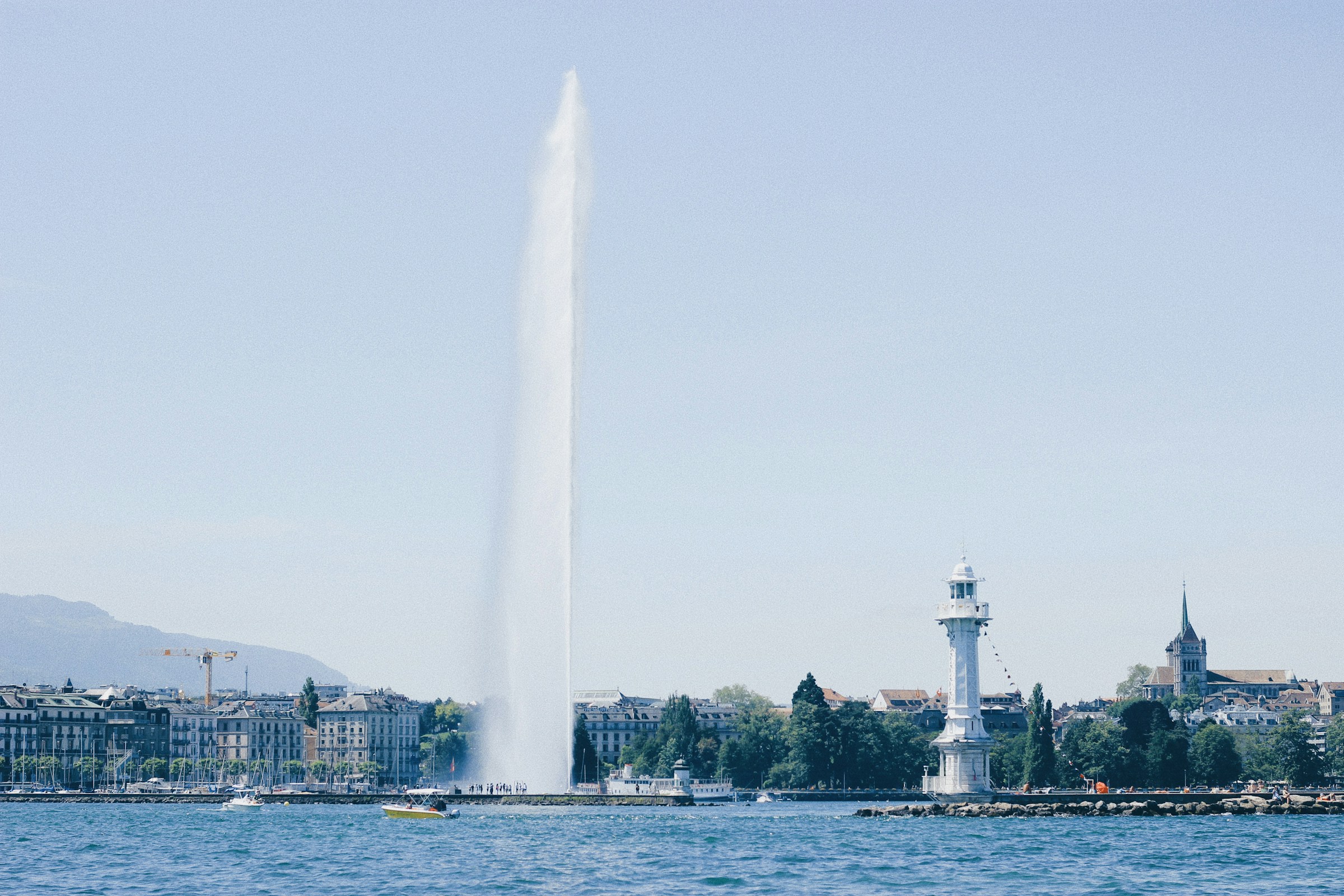History
 Photo: View of Lake Léman in Geneva, Switzerland (via Unsplash)
Photo: View of Lake Léman in Geneva, Switzerland (via Unsplash)
In 2015, the Swiss Confederation supported the University of Geneva’s application through the Global Water Program of the Swiss Agency for Development and Cooperation and the Swiss Commission for UNESCO. As a result, in November 2015 the UNESCO Chair in Hydropolitics was attributed to UNIGE.
Phase I
In its initial period of performance between 2015 and 2019, the Chair contributed to the launching of the Geneva Water Hub, a competence centre focused on a better understanding of hydropolitical process and on the promotion of the role of water in peace building processes. The Chair has been instrumental in defining the scientific agenda on hydropolitics at the University of Geneva. It also contributed to the development of several teaching programs be it online (for instance a MOOC on Water Resources Management and Policy) or face-to-face in Geneva and beyond.
Phase II
In recognition of its significant contributions to the field, the UNESCO renewed the Chair for a second phase of work (2020-2024). During this period, the Chair strengthened its collaboration with its network of national and international partners. The Chair notably took on the coordination of the Universities Partnership fo Water Cooperation and Diplomacy and co-led (in cooperation with IHE-Delft Institute for Water Education) a MOOC on Water Cooperation and Diplomacy. By multiplying its research projects, teaching and learning activities, and tailored training courses, the Chair continued to explore the keys to a better understanding of water politics and to create new connection at the water science-policy interface worldwide.
Phase III
In 2024, the UNESCO renewed the Chair for a third phase of word (2024-2028). In this period, the Chair will further contribute to the activities of UNESCO International Hydrological Programme. To do so, the Chair aims to further develop research activities with partners from the Global South and Global North, to train the next generations of researchers and to contribute to enhance capacities through online and face-to-face teaching.
